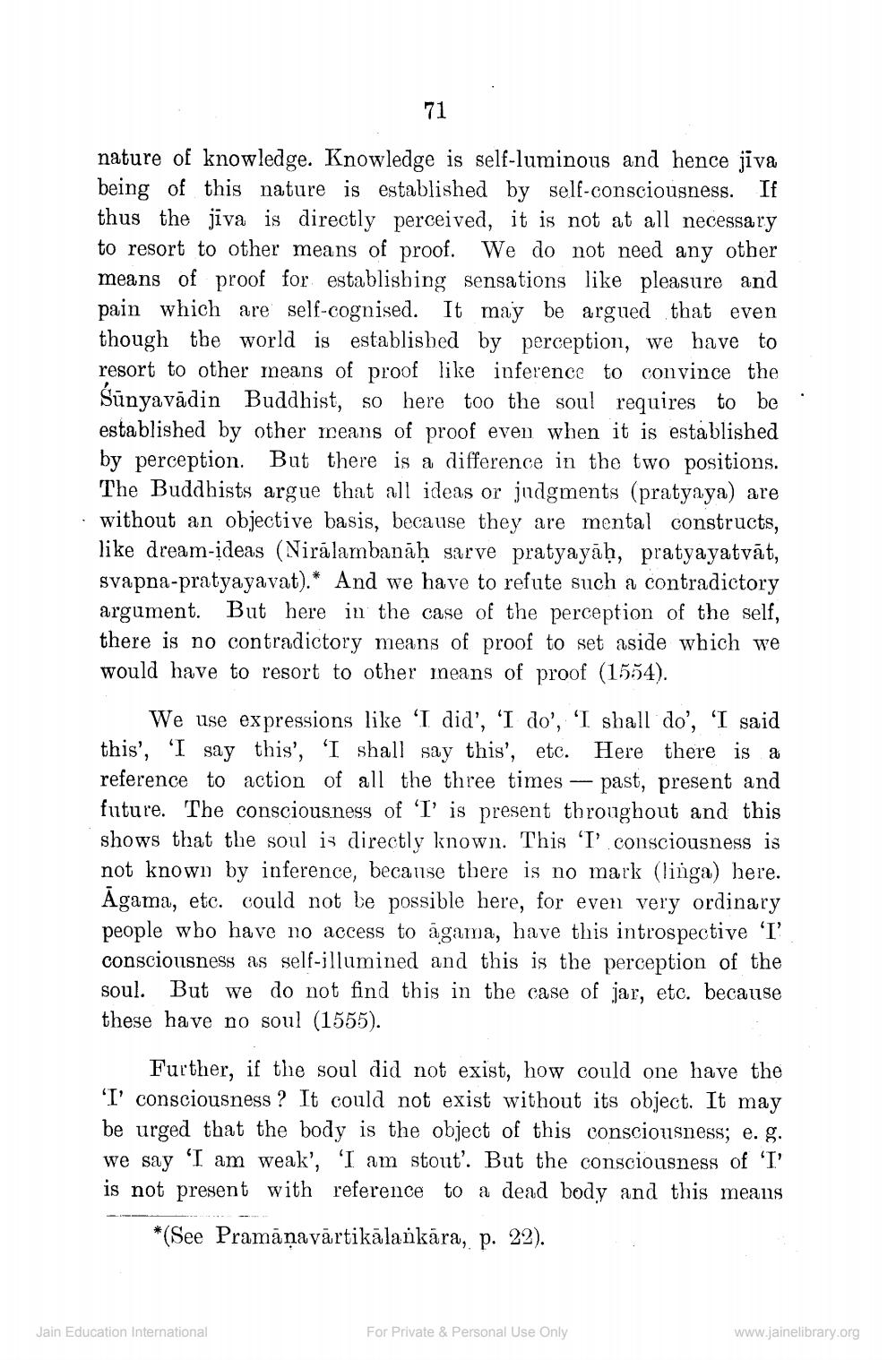________________
71
nature of knowledge. Knowledge is self-luminous and hence jiva being of this nature is established by self-consciousness. If thus the jīva is directly perceived, it is not at all necessary to resort to other means of proof. We do not need any other means of proof for establishing sensations like pleasure and pain which are self-cognised. It may be argued that even though the world is established by perception, we have to resort to other means of proof like inference to convince the Sūnyavādin Buddhist, so here too the soul requires to be established by other means of proof even when it is established by perception. But there is a difference in the two positions.
The Buddhists argue that all ideas or judgments (pratyaya) are · without an objective basis, because they are mental constructs,
like dream-ideas (Niralambanāḥ sarve pratyayāḥ, pratyayatvāt, svapna-pratyayavat).* And we have to refute such a contradictory argument. But here in the case of the perception of the self, there is no contradictory means of proof to set aside which we would have to resort to other means of proof (1554).
We use expressions like 'I did', 'I do', 'I shall do', 'I said this', 'I say this', 'I shall say this', etc. Here there is a reference to action of all the three times - past, present and future. The consciousness of 'I' is present throughout and this shows that the soul is directly known. This 'I' consciousness is not known by inference, because there is no mark (linga) here. Agama, etc. could not be possible here, for even very ordinary people who have no access to agama, have this introspective 'I' consciousness as self-illumined and this is the perception of the soul. But we do not find this in the case of jar, etc. because these have no soul (1555).
Further, if the soul did not exist, how could one have the 'I' consciousness ? It could not exist without its object. It may be urged that the body is the object of this consciousness; e. g. we say 'I am weak', 'I am stout'. But the consciousness of 'I' is not present with reference to a dead body and this means
*(See Pramāņavārtikālankāra, p. 22).
Jain Education International
For Private & Personal Use Only
www.jainelibrary.org




